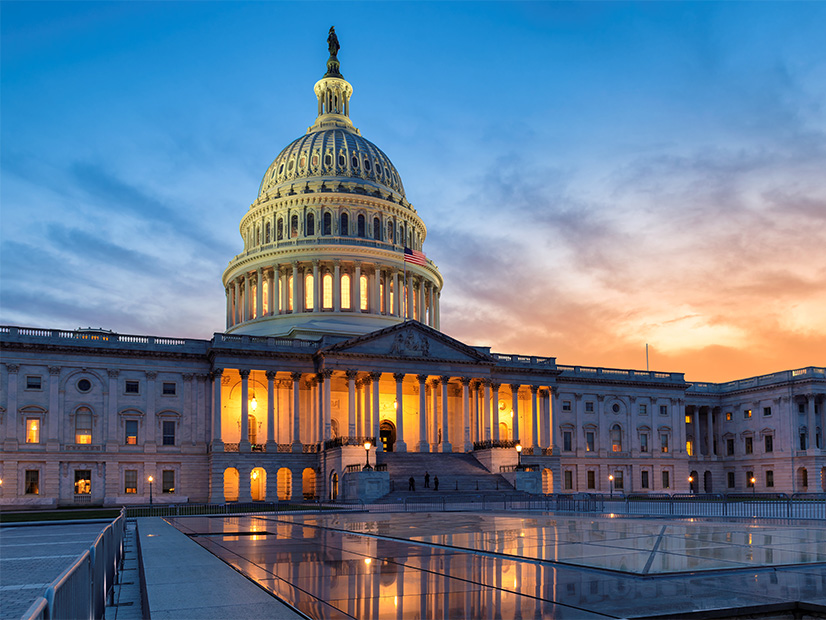The bipartisan permitting bill that passed the Senate Energy & Natural Resources Committee is officially dead, with Sen. Joe Manchin (I-W.Va.) saying Dec. 16 it would not be included in a must-pass spending bill.
Manchin blamed House Republicans, specifically Majority Leader Mike Johnson (R-La.), as negotiations around the issue failed and it will not be included in the last legislative vehicle to make it out of this Congress.
“By taking permitting off the table for this Congress, Speaker Johnson and House Republican Leadership have done a disservice to the incoming Trump administration, which has been focused on strengthening our energy security and will now be forced to operate with their hands tied behind their backs when trying to issue permits for all of the types of energy and infrastructure projects our country needs,” Manchin said.
While Republicans are poised to also take control of the Senate next year, their 53-47 majority will require votes from Democrats for meaningful permitting reform, he added. Reforming the National Environmental Policy Act, FERC’s governing statutes and other relevant laws is too far afield from the budget to be eligible for the reconciliation process that avoids the 60-vote threshold, which Democrats used to pass the Inflation Reduction Act.
“I am very proud of the work that my friend and partner, Sen. John Barrasso, and I put in over the course of nearly two years with our colleagues on the Senate Energy & Natural Resources Committee to get the Energy Permitting Reform Act negotiated, drafted and through the committee process with a historic 15-4 favorable vote, sending a clear signal that the time is now to get this done,” Manchin said.
As Congress was negotiating what would be included in the continuing resolution it needs to pass by the end of this week to keep the government funded, a broad group of trade associations asked for its passage.
The American Council on Renewable Energy, American Chemistry Council, Advanced Energy United, Center for LNG, Clean Energy Buyers Association, Electric Power Supply Association, National Mining Association, Solar Energy Industries Association, the U.S. Chamber of Commerce, and dozens of others signed onto a letter urging Congress to pass a bill.
“America’s energy industry is united in one common goal — providing affordable, reliable, cleaner domestic energy,” the letter said. “But our current permitting system frequently prevents us from accomplishing that goal, bogging down our projects in bureaucratic delays and endless litigation. For example, it can take, on average, up to 10 years to permit a single transmission line and 29 years to move mining projects through the federal permitting process, 3-8 years just for litigation.”
Another letter from 25 conservative and “free market” groups, led by the Competitive Enterprise Institute, urged Congress to wait until its next session to pass permitting legislation. They specifically argued against increasing the federal role in electric transmission siting.
“It makes no sense for Republicans to move forward with legislation now when next year they will control the House, the Senate and the White House,” the CEI-led letter said.
“Anything that Republicans and those who want genuine permitting reform can get now they can get next year, and much more. There would be less need for compromise, such as by enacting harmful transmission policy that would untap the Inflation Reduction Act subsidies and primarily serve to put unreliable electricity generation on the grid (i.e. wind and solar).”




